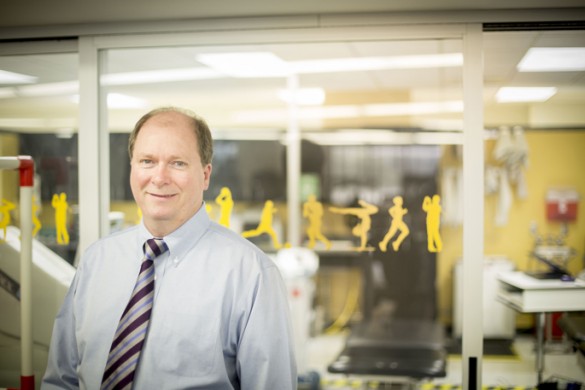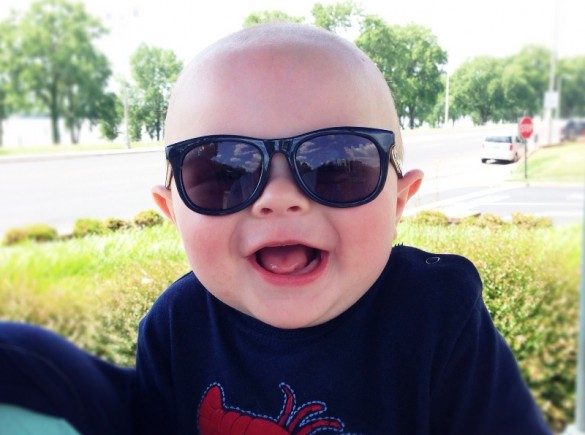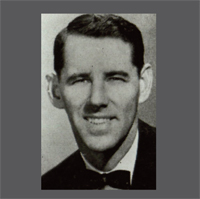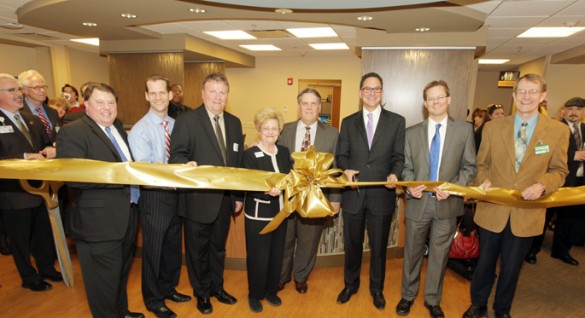
Before Douglas Weikert, M.D., came to Vanderbilt, he followed Larry Bird down a basketball court in French Lick, Indiana, where the NBA legend was five grades ahead of him in school.
“While I wasn’t nearly as good as Larry, I ended up coming here on a scholarship,” he said.
The orthopaedic surgeon has never been far from sports or Vanderbilt since he arrived here in 1979 to play point guard.
His workweek these days might include saving the career of a professional athlete, traveling with the Commodores as a football team physician or rebuilding a child’s hand.
“You never know what you are going to see,” he said. “For me, I think one of the real positive things about being here is that it has made me a better surgeon — hopefully a better person as well.”
It’s not uncommon for Weikert to turn on ESPN and see a patient on the field. Three of the eight teams in the 2011 College World Series had someone he had treated on their rosters.
“If I have a patient playing for the Boston Red Sox or the Nashville Predators or Tennessee Tech or Austin Peay — whoever — I take more than just a passing interest in that game,” he said. “I want to know how my patient is doing.”
His scholarship helped Weikert get through undergraduate school at Vanderbilt, but the 6-foot-tall player didn’t get the same court action as “guys with turbojets on their feet, doing 38-inch vertical jumps.”
“I figured out pretty quickly that I needed to go to class and get a degree,” he said.
After graduating in 1983, he applied for medical school at both Vanderbilt and Indiana University. He got accepted at both places.
“While Indiana was my previous home, I just had this calling that maybe I belonged here in Nashville at Vanderbilt,” he said.
His high school sweetheart and future wife, Becky, moved to Nashville to work at Vanderbilt University in alumni relations while he attended Vanderbilt University School of Medicine.
After earning his medical degree, he did his internship and orthopaedic residency at Vanderbilt from 1987 to 1992.
The next year, he completed a fellowship in hand surgery at Indiana Hand Center. Then he came back to Vanderbilt and joined the faculty. Two of his children are Vanderbilt graduates.
His work requires him to be adroit in microsurgery and plastic surgery, especially when he’s reattaching children’s limbs.
“I was fortunate to be involved in one of the youngest arm reattachments in the country,” Weikert said.
“It was a 14-month-old child who was in a car wreck. It had amputated his right arm. I wasn’t supposed to be on call that night. I had traded with somebody else to be on call. The next thing you know I am seeing an X-ray of an amputated arm above the elbow in a little baby. Just a tiny baby. I had never done that before.”
He also reattached one of 13-year-old Kaitlyn Lasitter’s feet after both were severed by a cable that broke lose on an amusement ride in Kentucky.
“I have watched her grow up,” Weikert said. “This was eight years ago. She has a family now. I have video of her running up and down my hallway in the clinic after this horrible injury that basically amputated both her feet.
“Things like that you just can’t put a price on.”
Weikert worked for two years rebuilding the hand of a boy who, as a 3-year-old, had it submerged in boiling water by an abusive parent. The series of surgeries required sewing the boy’s hand into the skin of his thigh and putting him in a body cast to restore blood flow to grafted skin.
Not every surgery is successful. Weikert held back tears as he expressed gratitude toward a former patient, a boy, who thanked him years after a failed operation to reattach fingers severed by a riding lawnmower. The boy had not let the loss of his fingers keep him from playing baseball. He was on his way to a tournament when he stopped by Vanderbilt.
Weikert embraces the challenging cases.
“I want to take some 20-foot, turn-around jumpers — not just shoot layups every day,” he said. “You get a lot of 20-foot, turn-around jumpers at Vanderbilt.”















